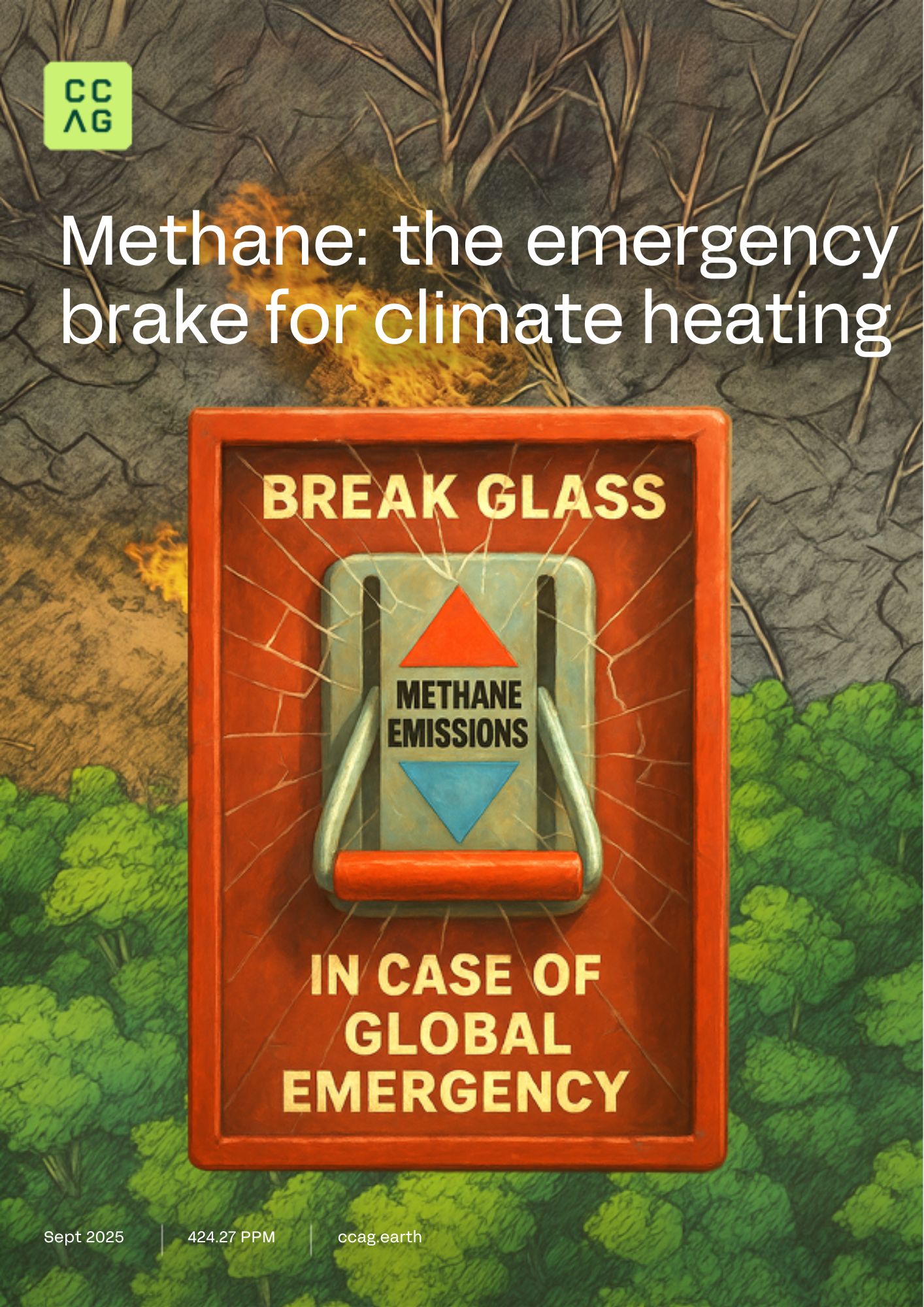

While reducing carbon dioxide remains essential, action on CO₂ alone will not be enough to avert dangerous near-term climate heating. Methane, a greenhouse gas over 80 times more potent than CO₂ , is responsible for nearly a third of the warming the world has already experienced. This report outlines why rapid methane abatement is the ‘emergency brake’ for the climate crisis – the fastest and most cost-effective lever available to slow warming within our lifetimes. The report outlines practical, proven, and often profitable solutions across the three key emitting sectors: energy, agriculture, and waste. It argues that the main barriers to action are not technological but a lack of political will, regulation, and enforcement , and calls for a dedicated global strategy to unlock the powerful co-benefits of methane cuts for public health, food security, and economic resilience.
